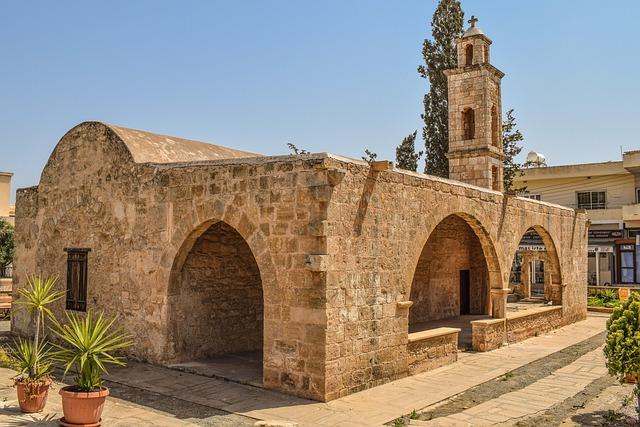France Commemorates Victims of Deadly Paris Attacks a Decade Later
As the sun rose over Paris on November 13, 2025, the city paused to reflect on a dark chapter in its recent history—the deadly attacks that shook the nation ten years prior. Memorial services were held across the capital, honoring the 130 lives lost during the coordinated assaults on the Bataclan theater, cafes, and the Stade de France. Families, officials, and citizens gathered to pay their respects, marking a moment of collective remembrance amid ongoing discussions about national security and the legacy of terrorism in France. This poignant anniversary not only highlights the enduring scars left by that tragic night but also underscores the resilience and unity of a nation determined to remember and heal.
Remembering the Impact of the 2015 Paris Attacks on National Identity
On the eve of the tenth anniversary of the tragic Paris attacks, the nation finds itself reflecting on how these events have reshaped its collective consciousness. The assaults that unfolded on November 13, 2015, brought forth a wave of existential questioning about what it means to be French in a modern, interconnected world. Public memorials and discussions are not just about remembering the lives lost but also about embracing a narrative of unity. Resilience and solidarity have emerged as core tenets of national identity, starkly contrasting the ideologies underpinning the assaults.
As the country pauses to pay homage to the victims, it’s essential to recognize the broader ramifications on societal norms and policies. The attacks spurred significant changes in security measures, legal frameworks, and public sentiments, often igniting debates around immigration, freedom, and national values. The scars of that fateful night have led to an intense introspection about French identity—raising critical questions about integration and social cohesion. In commemorating those lost, France acknowledges a painful chapter, while also reaffirming its commitment to principles of liberty, equality, and fraternity, which remain vital to its identity.
| Event | Date | Impact |
|---|---|---|
| Bataclan Concert Hall Attack | November 13, 2015 | Heightened security across public venues |
| Nationwide Vigil | November 14, 2015 | Solidarity among communities |
| State of Emergency Declared | November 13, 2015 | Expanded police powers |
Reflections from Survivors and Families: Voices of Resilience and Mourning
Ten years after the tragic events that shook Paris to its core, survivors and the families of victims continue to grapple with their profound losses. Their stories illuminate a landscape marked by both anguish and an unyielding spirit. Many expressed a shared sentiment of resilience, emphasizing the importance of remembering those lost while pushing forward. One survivor remarked, “Each year we gather not just to mourn, but to celebrate the lives that were taken too soon. They are still with us in every act of kindness we show to one another.” This sentiment echoes throughout the community, as gathering together provides a crucial sense of solidarity and strength.
The emotional landscape of grief is multifaceted, and many families articulated the personal journeys they have traversed since that fateful night. Challenges included:
- Dealing with ongoing trauma
- Seeking justice and accountability
- Finding ways to keep the memories of loved ones alive
Some families have taken their grief and transformed it into advocacy, working to promote peace and understanding in the face of hatred. A father of one of the victims shared, “I would rather channel my pain into something constructive than let it consume me. I choose to honor my daughter’s legacy by fighting for a world where such violence is no longer tolerated.” In the heart of Paris, these voices of resilience remind us of the enduring impact of terror and the power of love amid grief.
Strengthening Security Measures: Lessons Learned Over a Decade
As France reflects on the tragic events that unfolded a decade ago, there is a collective acknowledgment of the lessons learned in the realm of public safety and national security. The attacks served as a wake-up call, highlighting vulnerabilities in urban areas and the need for a robust response. Over the years, various measures have been implemented, including:
- Enhanced Surveillance: The deployment of surveillance technologies in public spaces has increased, allowing for quicker identification of potential threats.
- Collaboration Across Borders: International partnerships have strengthened, facilitating information sharing and coordinated responses to terrorism.
- Community Engagement: Initiatives aimed at increasing public awareness and community involvement have been prioritized, transforming citizens into proactive defenders of their own neighborhoods.
In the aftermath of those harrowing incidents, the evolution of law enforcement tactics cannot be overlooked. Emergency response strategies have been refined, and periodic training exercises ensure that first responders are prepared for real-life scenarios. A pivotal change has been the establishment of a multi-agency approach, with various law enforcement and emergency services working together seamlessly. This collaboration is overseen through a systematic framework:
| Agency | Role | Coordination Type |
|---|---|---|
| National Police | Public Safety | Direct Communication |
| Military | Securing Critical Infrastructure | Joint Operations |
| Emergency Medical Services | Medical Response | Integrated Response Teams |
Promoting Unity and Understanding: France’s Path Forward in the Face of Tragedy
As France reflects on the painful memories of the Paris attacks a decade ago, the nation is united in its resolve to promote tolerance and understanding among its diverse communities. Public commemorations serve not only as a remembrance of those lost but also as a call to action against division and hatred. In schools, local governments, and neighborhoods, initiatives are emerging to foster dialogue and collaboration among cultures, ensuring that the lessons learned from these tragic events resonate deeply within society.
Key strategies being adopted include:
- Community Forums: Regular meetings designed to encourage open discussion between various cultural groups.
- Educational Programs: Curriculum updates aimed at teaching students about diversity, respect, and the impact of violence.
- Artistic Expressions: Public art projects that celebrate unity and reflect the rich tapestry of French identity.
| Initiative | Description |
|---|---|
| National Solidarity Day | A day dedicated to unity and remembrance, encouraging communities to come together. |
| Cultural Exchange Programs | Programs designed to promote understanding through collaborative cultural activities. |
By embracing these approaches, France is laying the groundwork for a more cohesive society, emphasizing that through compassion and mutual respect, it can overcome the shadows of the past. The commitment to unity continues to evolve as citizens and leaders alike strive to build bridges, rather than walls, creating an enriched national identity that honors the past while looking toward a hopeful future.
The Conclusion
As France reflects on the harrowing events of the Paris attacks a decade ago, the solemn commemorations serve as a poignant reminder of resilience in the face of tragedy. The nation unites to honor the victims and acknowledge the ongoing impact of such violence on communities. As France and the world strive for healing, the importance of remembrance and vigilance against extremism remains paramount. The echoes of that fateful day continue to shape conversations about security, freedom, and collective peace, underscoring the enduring need to work towards a safer future for all.



